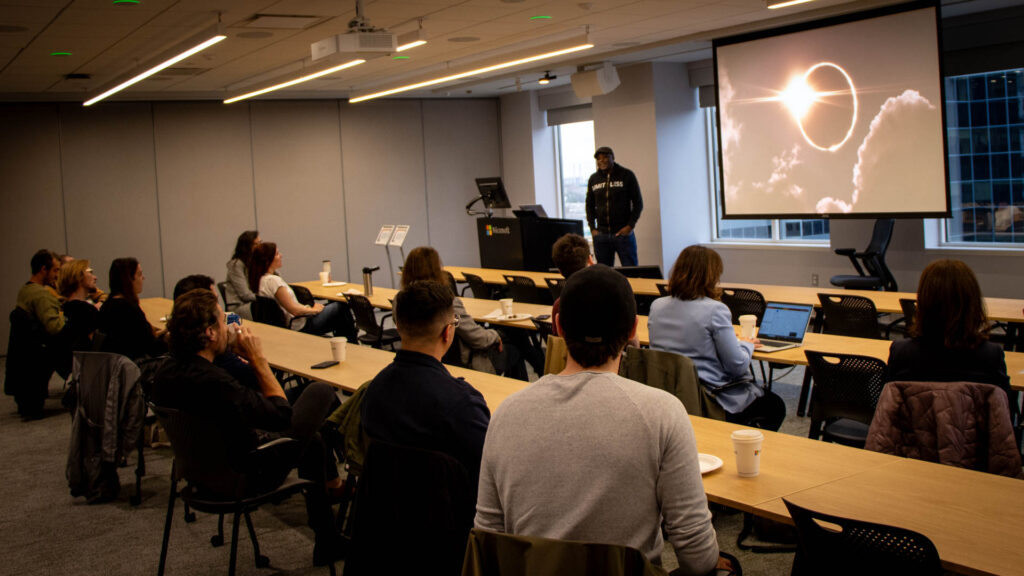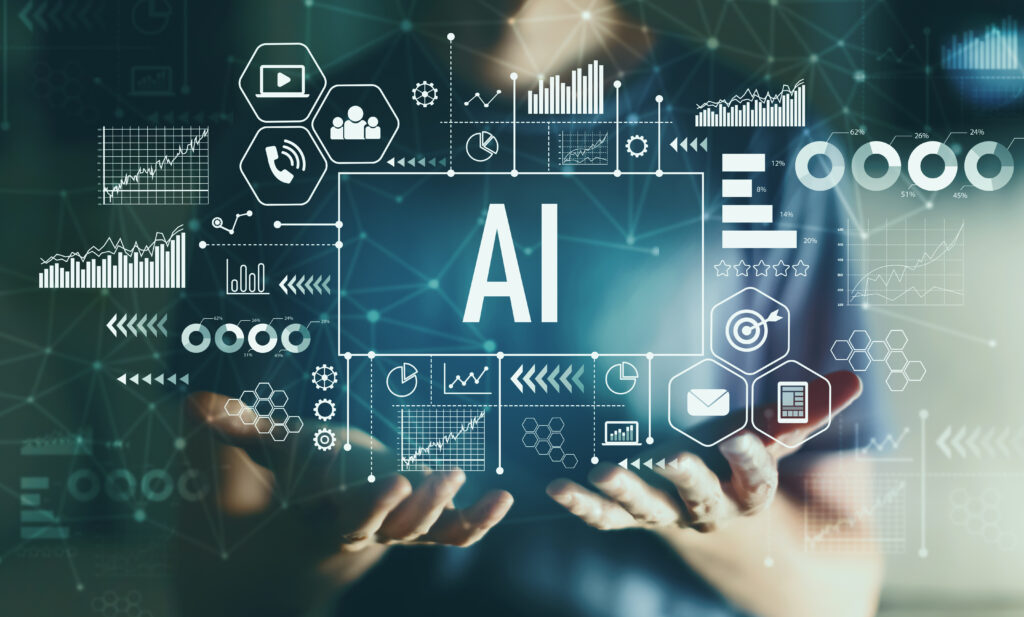Artificial intelligence opportunities
April 5, 2024

As we discussed in the article introducing our blog space, we are aware that the manager is currently facing several HR challenges, such as:
- Maximizing employee autonomy and performance
- Ensuring quality and compliance of operations
- Planning and preparing for succession
- Promoting change ownership
- Mobilizing their team
How can artificial intelligence (AI) help him or her meet these challenges? Let’s take a look at its contribution in a few specific roles: needs analysis, staff support and course production.
Needs analysis
In order to invest time and money in the right solution, a complete and representative needs analysis that takes into account the requirements of each stakeholder is essential. From organizational issues, through those of management, to the analysis of the profiles of managers, trainers and learners, each of these realities must be studied in order to have in hand all the data required for a quality needs analysis.
Once this data has been carefully determined and collected, AI comes in to make its magic happen. With just a few clicks, both qualitative and quantitative information is sorted and you have a clear picture of your organization’s or company’s current situation, enabling you to target and/or understand needs. With AI taking over, partly for the analysis and mainly for the compilation of information, the consultant’s tasks are redefined to focus entirely on the consulting role, fostering the emergence of creativity and innovation.
Once the orientations, recommendations and action plans appropriate to the company’s needs have been defined, all that remains to be done is to determine the means of putting them into practice, which may include coaching staff and producing courses.
Staff support
Just as it does for needs analysis, AI greatly enhances the use of technological tools that support staff coaching. It becomes possible, for example, to set up different personalized training paths to enable the development of each member of staff. A platform could offer a training program based on job competencies. Once the employee’s level has been identified, a training path can be set up to take him or her up to the next level, for example. This same platform enables the manager and trainer to monitor the employee’s progress, support him or her where necessary, and offer coaching or face-to-face modules to complete the individualized path. Staff as well as managers or trainers are able to exchange information via chat, video or by quoting the text that appears on the screen as they progress, and can even be translated into another language if required, regardless of location. Don’t tell me that AI doesn’t leave room for collaboration and communication between humans!
Course production
Artificial intelligence tools are becoming accessible and easy to use for the training design and production team. Multilingual autogenerated narration is emerging as a new option in addition to studio recordings with actors. Auto-generated narration not only facilitates audio production as such, but also updates, which can be handled by the team empowered by the user-friendliness of the tools. And the voices are beautiful, too!
What’s more, in just 3 clicks, the entire narration can be translated into Canadian or Texas English, as you wish. The same goes for images and animations, which can be auto-generated and customized, free of copyright since they were created just a few seconds ago by AI. Reducing time spent on highly technical tasks allows specialists to concentrate on content or user experience – now that’s interesting!
In short, AI can become a valuable and effective accelerator. This powerful tool requires rigorous management by human beings, and raises some challenges, but once tamed, it will be hard to do without!
Our solution
We’ve been thinking about these same opportunities in relation to our own use of AI in our platform and services.
Contact us to find out more.


 info@hybformation.com
info@hybformation.com








